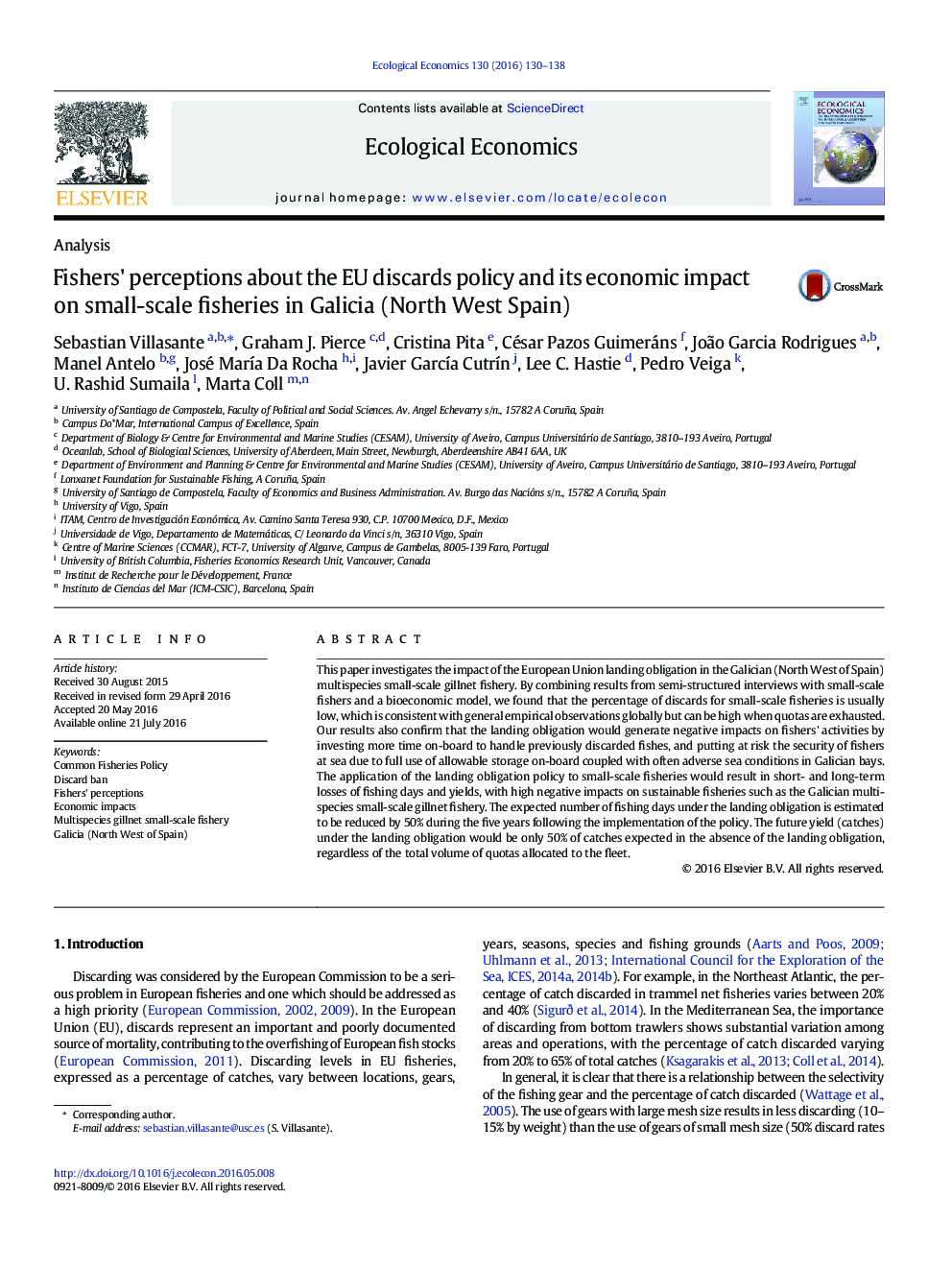| Article ID | Journal | Published Year | Pages | File Type |
|---|---|---|---|---|
| 5048960 | Ecological Economics | 2016 | 9 Pages |
â¢The percentage of discards is usually low, but can be high when quotas are exhausted.â¢Species subjected to TACs exhibit higher percentages of discards than those managed by other measures.â¢The landing obligation would result in short- and long-term losses of fishing days and yields.â¢Fishing days and yields under the landing obligation will be reduced by 50% in the 2016-2026 period.
This paper investigates the impact of the European Union landing obligation in the Galician (North West of Spain) multispecies small-scale gillnet fishery. By combining results from semi-structured interviews with small-scale fishers and a bioeconomic model, we found that the percentage of discards for small-scale fisheries is usually low, which is consistent with general empirical observations globally but can be high when quotas are exhausted.Our results also confirm that the landing obligation would generate negative impacts on fishers' activities by investing more time on-board to handle previously discarded fishes, and putting at risk the security of fishers at sea due to full use of allowable storage on-board coupled with often adverse sea conditions in Galician bays. The application of the landing obligation policy to small-scale fisheries would result in short- and long-term losses of fishing days and yields, with high negative impacts on sustainable fisheries such as the Galician multispecies small-scale gillnet fishery. The expected number of fishing days under the landing obligation is estimated to be reduced by 50% during the five years following the implementation of the policy. The future yield (catches) under the landing obligation would be only 50% of catches expected in the absence of the landing obligation, regardless of the total volume of quotas allocated to the fleet.
